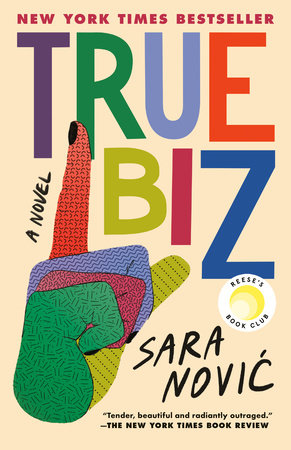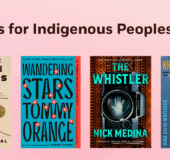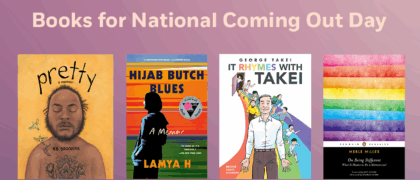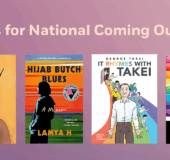Contributed by Sara Nović, author of True Biz: A Novel. Following students at the River Valley School for the Deaf, True Biz is a story of sign language and lip-reading, disability and civil rights, isolation and injustice, first love and loss, and, above all, great persistence, daring, and joy. Absorbing and assured, idiosyncratic and relatable, it is an unforgettable journey into the Deaf community and a universal celebration of human connection.
I remember arriving at college thinking, finally! Books, I thought, could save the world, as they had saved me. As a first-gen college student I had few expectations and little guidance on what I was “supposed to” be doing there, which was at turns a blessing and isolating. Even if today’s supports had been offered at the time, I don’t know that I would have made good use of them—the thing about first-gen students is not only that we don’t know the answers, but we don’t yet know the questions to ask. I was fortunate to land in a literature program far from my public school’s library of “white boys and their dogs,” one where the canon itself had been pushed to the margins.
I never encountered any deaf characters, but I saw my first glimpses of myself on the page as we studied queer theory, memoirs of homes colonized, and novels of immigrants’ journeys—here were the code-switchers, those on the fringes of society, some of whom were unabashedly, dazzlingly different. Their stories were an open window of possibility. My professors gave me permission to write stories of my own. And maybe most importantly, the office of Disability Studies provided access for me, quickly, effectively, and without making me feel like a burden; without their work, even the best-laid syllabi would have been useless. My years at Emerson were a stretch of golden time, an experience that furthered my idealistic view of the academic world.
Flash-forward nearly a decade: I’d completed a graduate program and published a novel, and now I was arriving at a university for a coveted tenure-track position, starry-eyed and keen to make a difference in the lives of my students. But within the first few days, I could tell things were not going to be how I had imagined. While a specialized office coordinates accommodations for students, there is generally no such system ready to serve disabled professors. As my requests for sign language interpreters bounced back from HR unanswered, a higher up in the cash-strapped Humanities department admitted to me that if they had known the department would have to defray the costs of my access, they wouldn’t have hired me. On an email thread, a union battle was brewing as HR also refused to provide accommodations for a professor losing his vision. Off-campus, I had to withdraw from my first conference presentation because the host organization refused to provide an interpreter. I stayed and fought these battles for a couple years, not making much headway. I got pregnant with my son and in the process of congratulating me, a colleague shared that her brother-in-law, too, was deaf, but that I shouldn’t worry, because “his kids came out fine.”
Soon after I decided to give up my post and return to teaching part-time. I still loved academia, but academia didn’t love me back anymore. Why, I wondered, are disabled people allowed to be students, but not teachers? Why is the notion of a disabled professor, researcher, or scholar beyond the bounds of our collective imagination? Maybe because most people simply never see us.
Without a doubt, representation matters to our marginalized students. I often say I would have realized I could be a writer much sooner had I seen other deaf writers, or even deaf characters in books. But what we say less often, what I’d challenge you to consider today, is how much representation of us matters for you, too.
In the same way we hope teaching books with fresh perspectives will broaden our students’ world, instructors also benefit from dipping into previously unseen worlds and learning something new. It’s the very thing that drew most of all to this career in the first place. Maybe in the process, our stories will be a reminder that disabled people can and should be beside you as your contemporaries. I hope a book like True Biz—which, in addition to being a deaf and a coming-of-age novel, explores the core of education and language itself—could be that open window.






